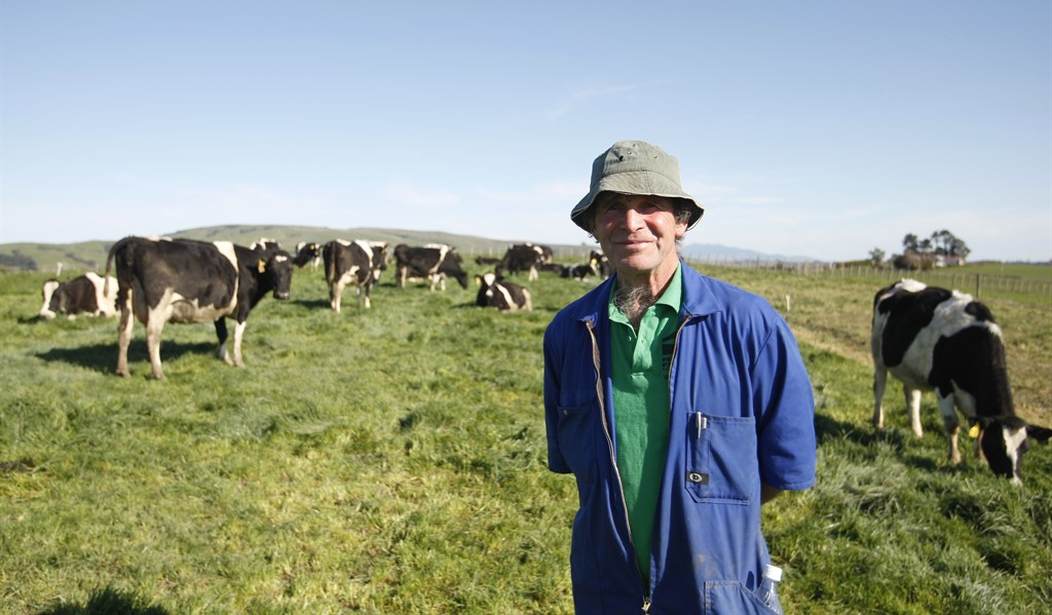An empty grocery shelf focuses the mind like nothing else. With COVID-19 disrupting supply chains and triggering higher-than-usual consumer demand, many of us have been shocked to find food staples in short supply. Although these shortages will resolve as supply chains re-boot, the main reason they will self-correct is thanks to the unsung heroes on the frontlines of the nation’s food supply: America’s farmers.
While the American economy has ground to a near-halt, farmers are still on the job, producing the vegetables, dairy, grains, meat, sugar beets and cane that bring us not just farm-fresh ingredients, but the many non-perishables that allow full pantries and fewer trips to the grocery store.
Farmers are aggressively deploying COVID-19 safety measures to protect employees – both permanent and seasonal. They are creating contingency plans for cows to be milked and crops to be picked in case key workers fall ill or must self-isolate. Put simply, farmers are making it their business to ensure the security of our food supply.
But even as they work tirelessly as federally designated essential workers, they face unprecedented challenges and a disturbing economic contradiction. Their labor is in maximum demand and is needed quite literally by the entire nation to get us through this crisis, and yet the farm products they produce are plummeting in price.
It was crucial to close schools, universities and bars and restaurants, but when those kitchens and cafeterias shut down, so did their robust orders for produce, dairy and meat. The drop in demand from these huge buyers has dramatically pushed down prices.
A recent analysis by the American Farm Bureau Federation (AFBF) shows that crop and livestock prices are falling to levels that will hit many farmers and ranchers hard, threatening the livelihoods of farmers and their employees. Soybean prices are down 10 percent, for example, while beef and pork futures prices have declined more than 30 percent since the beginning of the year. Corn has been hit especially hard, with a 40 percent drop in ethanol prices and a 15 percent drop in corn prices. Some ethanol plants have been forced to stop production, further depressing prices.
Recommended
Dairy farmers are confronting a different kind of crisis. According to the National Milk Producers Federation, there is currently an estimated 10 percent gap between dairy supply and demand caused by supply chain upheaval, lack of demand from restaurants and consumers sheltering in place. Spring is high season for milk production and farmers are being forced to dump what they cannot sell. Milk futures prices have also fallen sharply, with the price for milk used to make cheese down 28 percent and the price for milk used to make nonfat dry milk falling by 34 percent.
“Farmers and ranchers are determined to deliver on their commitment to provide a safe and abundant food supply, but make no mistake, they are facing make-or-break struggles, like many Americans,” said AFBF President Zippy Duvall.
There is some glimmer of hope from an emergency stimulus package which earmarks $23.5 billion for farmer relief. But this can only ever be a temporary fix given the longstanding issues many farmers face. Even before the pandemic gripped the nation, many were reeling from the trade war with China or from unfair global subsidies, as with sugar farmers who battle against foreign competitors powered into success by massive subsidization.
The COVID-19 emergency has placed into stark relief these policy issues that require attention once the crisis passes. We need to be supporting our farmers even when there isn’t a pandemic playing havoc with the food supply chain. The stronger our farmers in good times, the stronger their ability to keep food on our tables in tough times.
























Join the conversation as a VIP Member